Photographing Korean War Veterans – An Unfinished Mission
It was one of those days that goes above and beyond your expectations. Walking toward a restaurant last week with a Korean friend who would be my interpreter for the evening, I wasn't sure what to expect. Neither one of us had met the man we were about to have dinner with, and although we knew he was a photographer who had published a pictorial book on Korean War veterans and that he wanted to talk with us about his project, we didn’t know much more about him. The gentleman in question had contacted me a few weeks earlier after attending a Chosin memorial ceremony, where he had heard the Minister of Patriots and Veterans Affairs talk about my grandfather, Col. Edward H. Forney. Arriving at the restaurant, I was definitely curious.
Enter Lee Byung-Yong.
Mr. Lee, as I was about to discover, is an incredible example of someone who has dedicated his life to “telling the story.” Born in 1958, although you’d never know it by looking at him, Lee's bohemian appearance and warm smile exudes a feeling of camaraderie and benevolence. He’s the kind of person that makes you feel instantly comfortable. After introducing ourselves, exchanging name cards, and ordering food and maekoli, Lee began telling his story.
And I began taking notes.
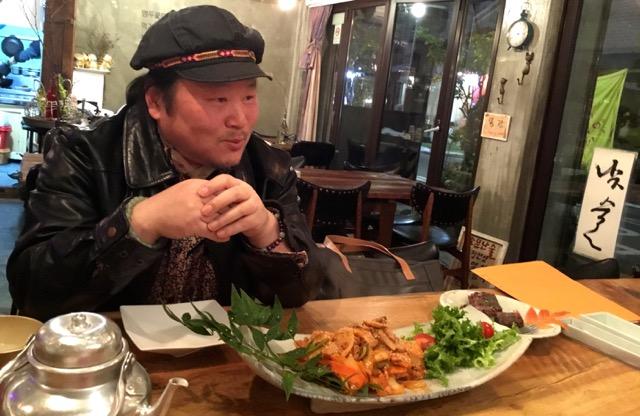
Mr. Lee recounting his travels in Ethiopia and Turkey. (Photo credit: Ned Forney)
As a ten-year-old living in Chuncheon, South Korea, Lee had the good fortune of attending his hometown’s opening ceremony of "The Memorial Hall for Ethiopian Veterans in the Korean War.” The newly-built museum, resembling the traditional Dorze “beehive" houses of Ethiopia, was an instant hit with the young boy. The Korean government had invited Ethiopia’s emperor, Haile Selassie, and Ethiopian Korean War veterans to the ceremony, and Lee remembers the impressive entourage like it was yesterday. The Ethiopians left a lasting impression on him.
Nearly 40 years later, after earning a degree in photography from Japan's Tokyo Polytechnic University and establishing his photography career, Lee traveled to Ethiopia. He had not forgotten the Korean War veterans he had met in 1968 and wanted to honor and commemorate them and their sacrifices through his pictures. He spent the next two months in the east-African country, roaming from one town and village to the next, staying with Korean War veterans and their families, and taking award-winning photographs. The Ethiopians’ hospitality, generosity, and appreciation for his efforts made him feel like a celebrity and greatly impacted him.
The experience was so profound that Lee realized he’d finally found his true calling: photographing Korean War veterans from all 21 UN countries that fought for and aided South Korea from 1950-1953. The following year he went to Turkey, spending six months there doing the same thing. Looking back on both trips, he said they changed his views on life, love, sacrifice, and death.
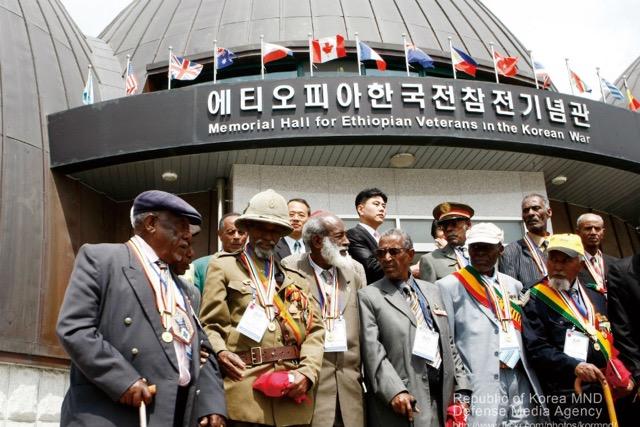
Ethiopian Korean War veterans visiting the The Memorial Hall for Ethiopian Veterans in the Korean War. (Photo credit: ROK MND Defense Media Agency)
As he told his stories that night, his passion for preserving the memories of the men who fought and died for South Korea was evident in his eyes, facial expressions, and voice. He’s a man determined to achieve a dream he wholeheartedly believes in. He plans on publishing 21 pictorial books, representing the men from the 21 UN countries that participated in the Korean War, and producing a photo exhibit to be displayed at the United Nations Headquarters in New York City. In the short-term, he'd like to visit the United States next year.
One of the last things he mentioned to me before leaving that night was his frustration with those who don’t appreciate, much less remember, the sacrifices made by the men - and their families - who did their part to ensure that the Republic of Korea remained free. He’s also frustrated about his lack of funding. He’s paid for all his trips with his own money and needs financial sponsorship to continue his project.
But he finished on a positive note, recounting the times he hugged Ethiopian and Turkish men and women after taking their photos. He could feel their heartbeat, he told me, and has a bond with them he still can’t explain in words - only pictures. He hopes that someday he’ll achieve his goal of photographing as many veterans as possible from around the world. I hope this blog can help him by creating an awareness of his passion for telling the Korean War story.
It was a memorable evening, and I’m grateful to have met Lee Byung-Yong, a man on a mission and a new friend.
Top picture: Lee Byung-Yong’s photo exhibit on Ethiopian Korean War veterans.
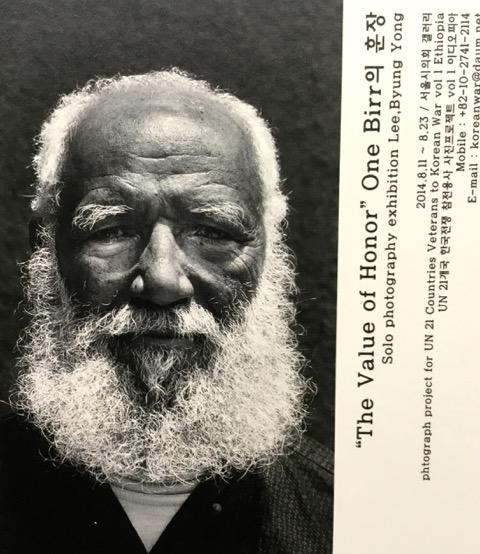
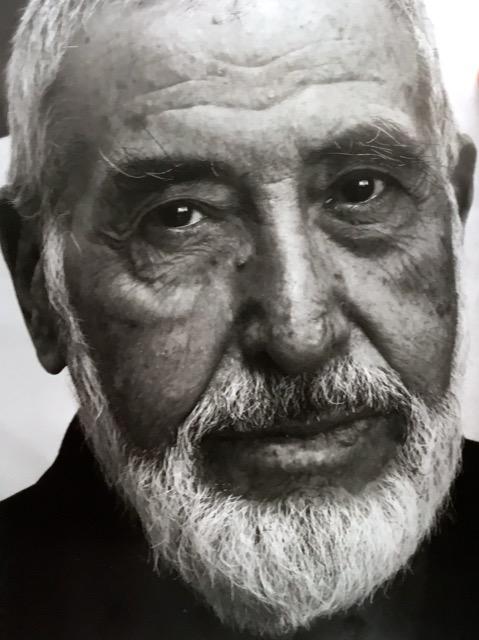
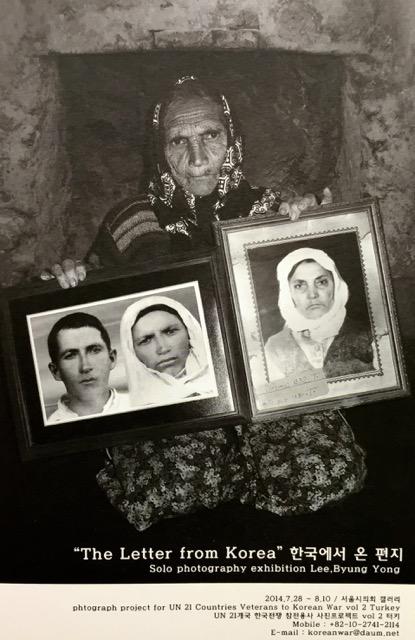
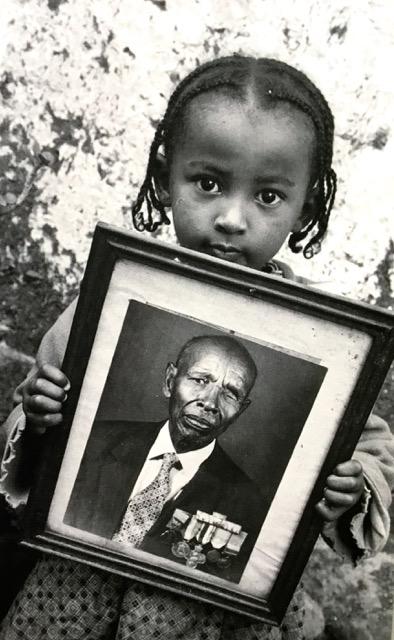
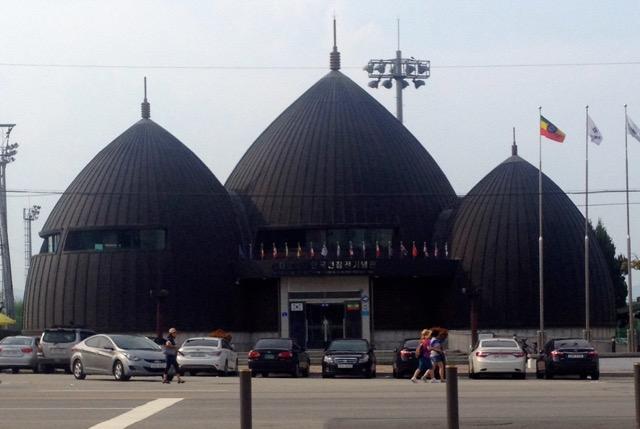
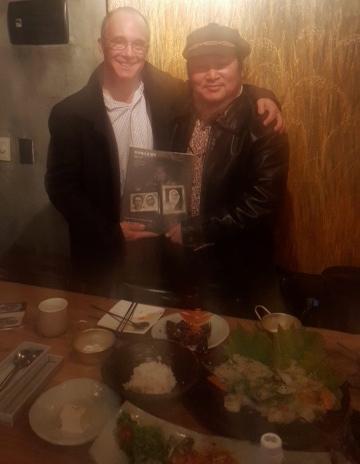
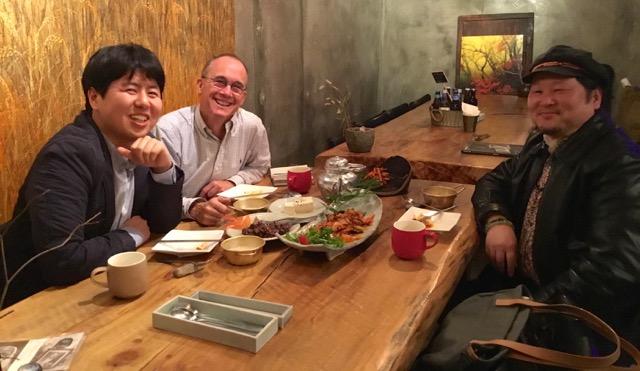
Very interesting. My father fought in Korea. He always said that the Turks were hard fighters. Thanks for this rid bit of forgotten history.
I’m glad you enjoyed the blog, Paul, and I appreciate the feedback. I’m happy to do my part in helping to remember and honor all Korean War veterans.
I have to say thank you. I just became friends with Mr. Lee. I’m in…..awe
Thanks for your feedback, Graham. Mr. Lee is not only an outstanding photographer, he’s also a wonderful advocate for the Korean War veterans. I’m glad to share his story.
Very interesting, Ned. Especially interested in the Ethiopians.
Thank you, Michael. I’m glad I could share this wonderful story and appreciate your passing it along.
Excellent post Ned.
Thanks for the positive feedback, Travis. I really like this story. He’s definitely an interesting man with a big heart.